Separate Tables (1958)
“Why does anybody do anything that they shouldn’t?”
|
Synopsis: |
|
Genres, Themes, Actors, and Directors:
Review: The dominant theme throughout the storyline is moral condemnation against anyone straying even slightly from “proper” British norms, as embodied by Cooper’s stereotypically tut-tutting busybody: The sway she holds over her dowdy, severely repressed grown daughter (Kerr) would be tragic if it weren’t so Hollywoodized (Kerr is oh-so-clearly “acting”). The gradual revealing of Niven’s shocking secret drives the narrative, though even that has been seemingly modified from its original impact. (Harassing random women in dark movie theaters is gross — but not anything close to what his character is accused of in the play.) The parallel subplot about beautiful Hayworth coming to visit the boarding house and disrupting Lancaster’s new life is meant to shock its residents (and us) out of whatever complacency we exist in, but frankly, she’s a non-starter. Hiller (who won a Best Supporting Actress Oscar) provides a solid grounding to the film as the house’s ever-present manager, but her romance with Lancaster is underdeveloped and not terribly realistic: Meanwhile, blink a few times and you’ll miss Rod Taylor in a throwaway narrative thread about unmarried lovers (shocking!) trying to hide their obvious affair — which wouldn’t be nearly such a problem if progressive Dalton would just agree to get married already: Peary doesn’t review Separate Tables in GFTFF, but he comments on David Niven’s Best Actor win in Alternate Oscars, where he notes that “Niven gave what was probably his most respectable performance… playing what was probably his least respectable character.” He adds that, “As usual, Niven gave a solid, professional performance,” though “this time he was more serious than he had been in the many thankless roles he’d had in his career” — and he argues that “Niven’s popularity in the Hollywood community — he was a nice, witty, gracious gentleman — was a contributing factor to his victory.” Indeed, Niven’s fine performance here is noteworthy, and one wishes the story focused even more on his character’s troubled past; at least he’s provided a measure of compassion in the film’s moving final moments. Notable Performances, Qualities, and Moments: Must See? Links: |
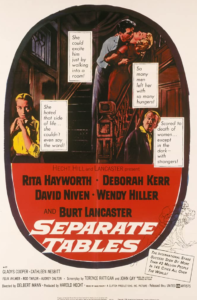
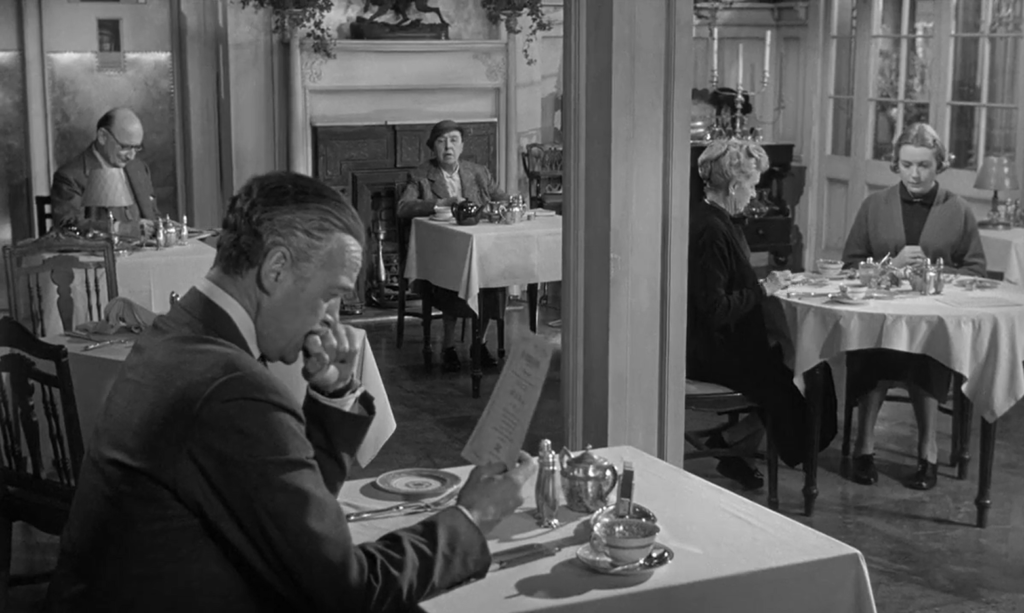
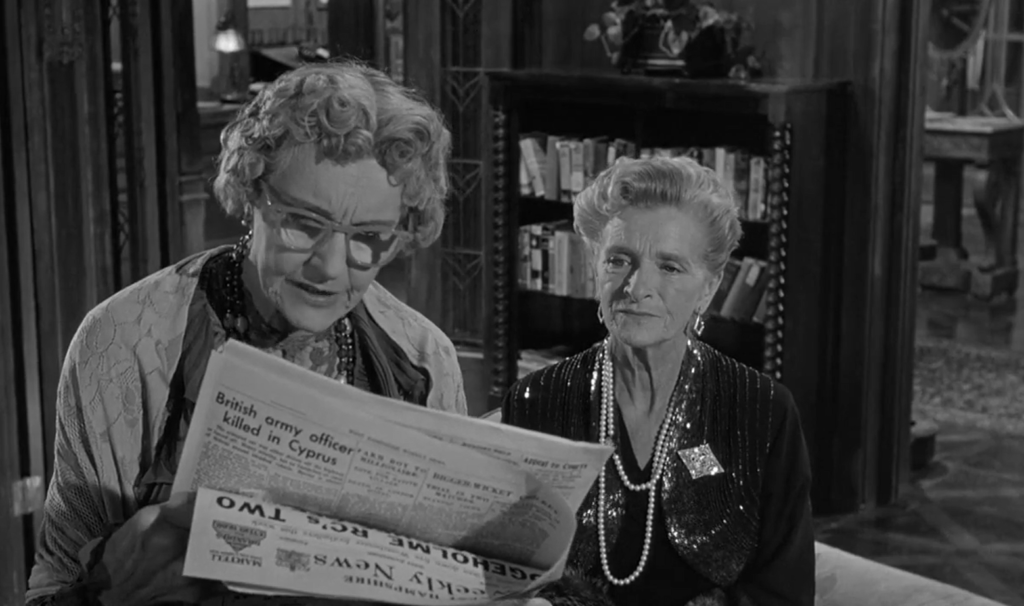
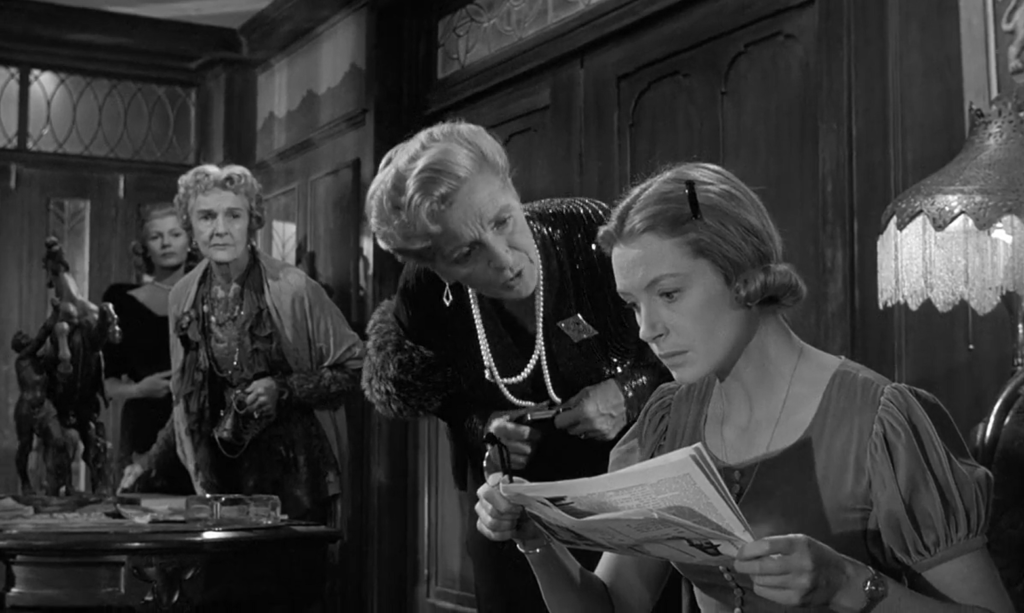
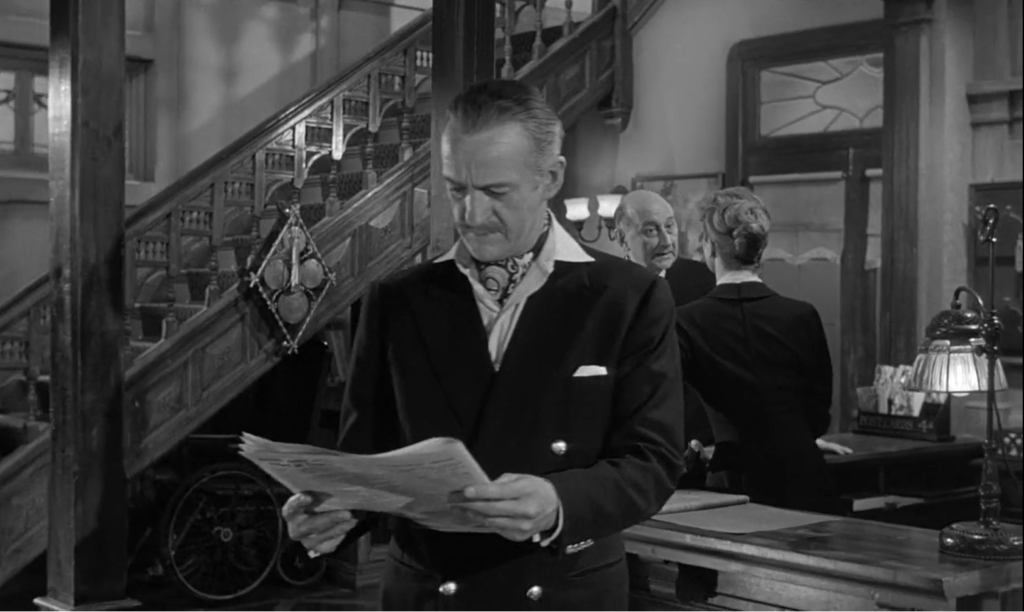
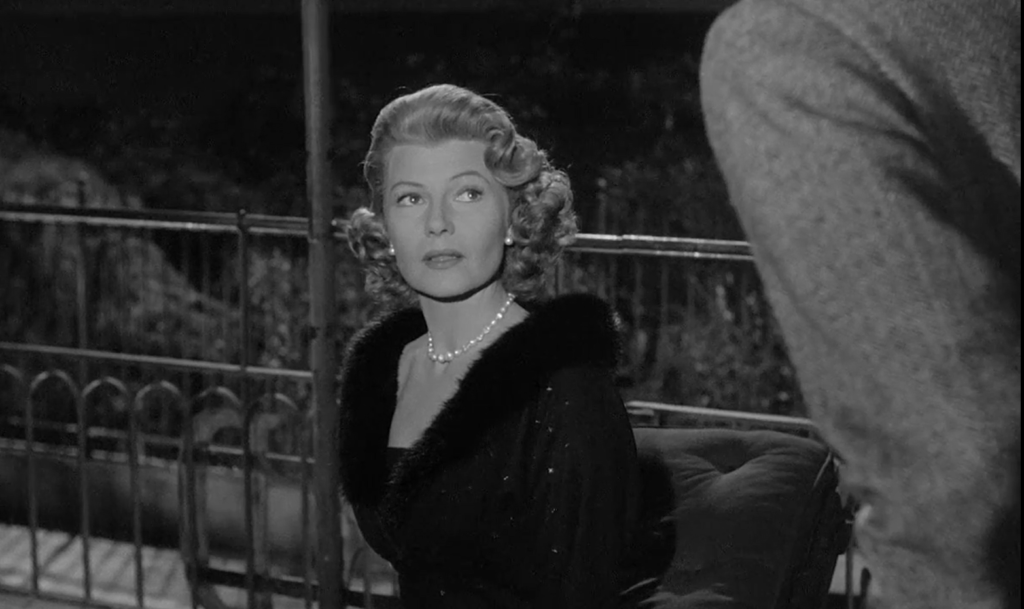
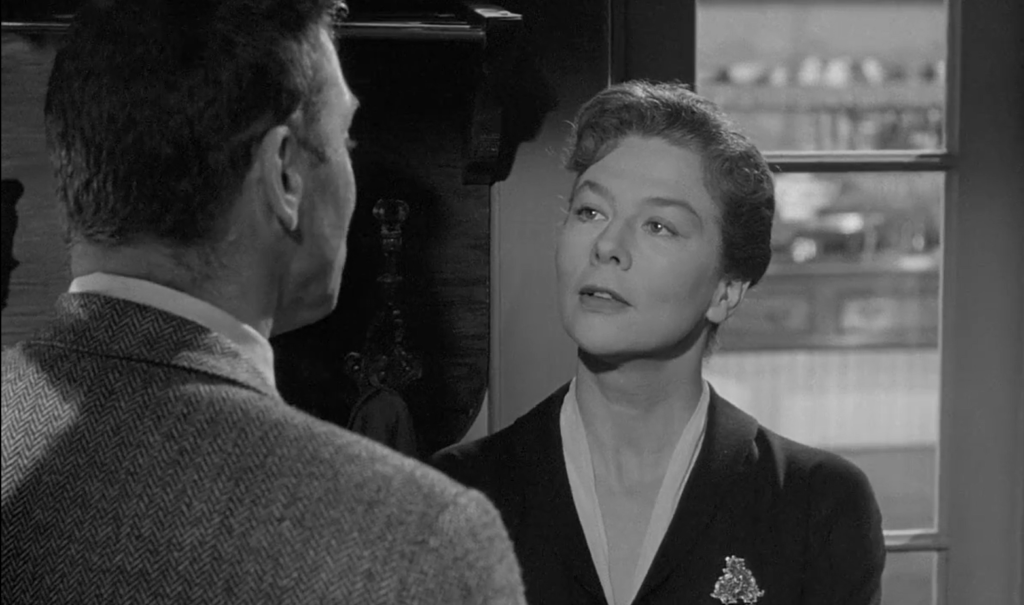
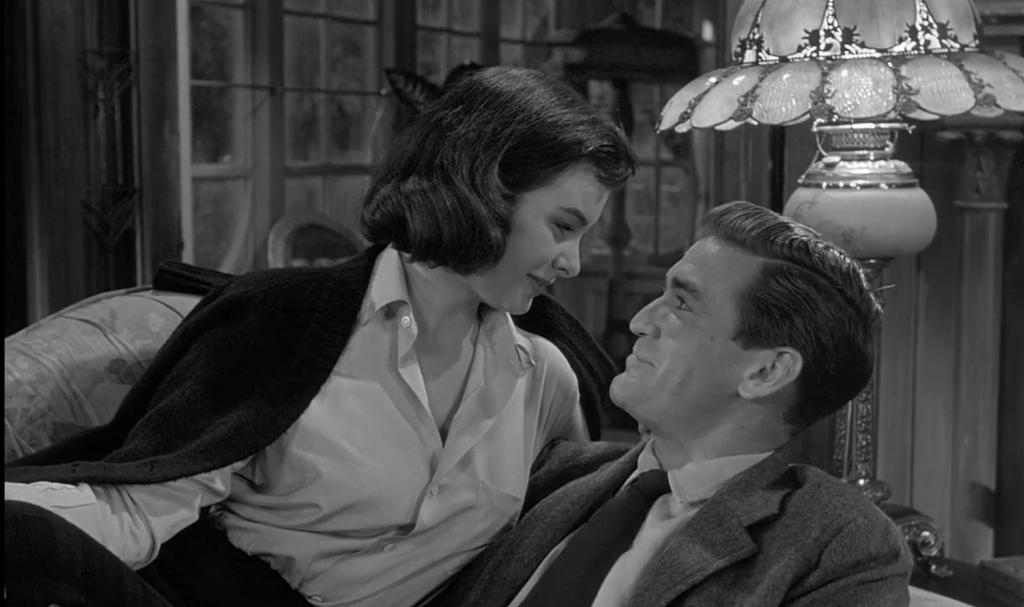
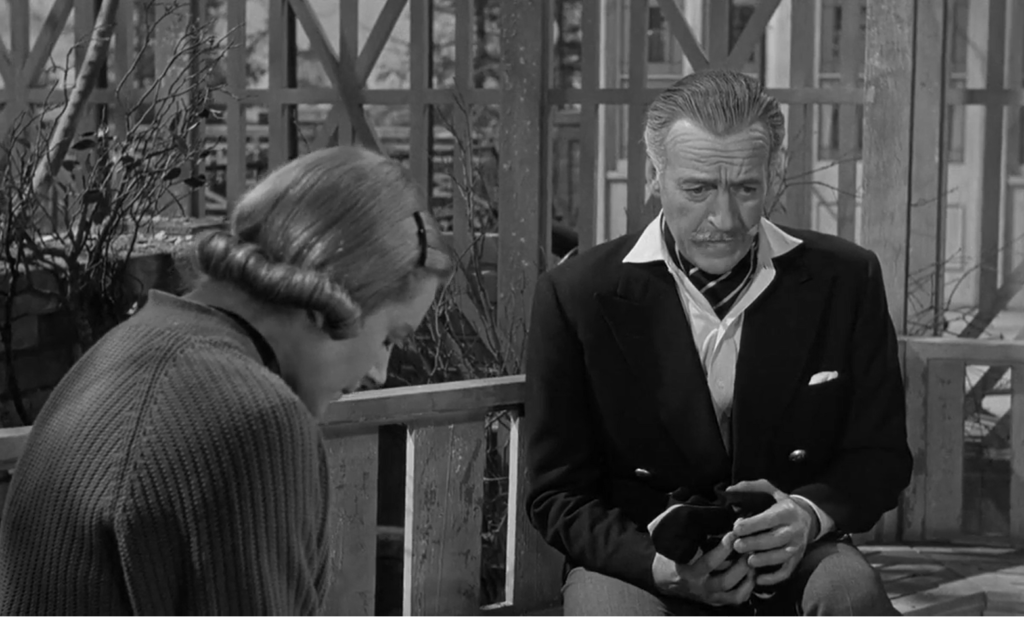
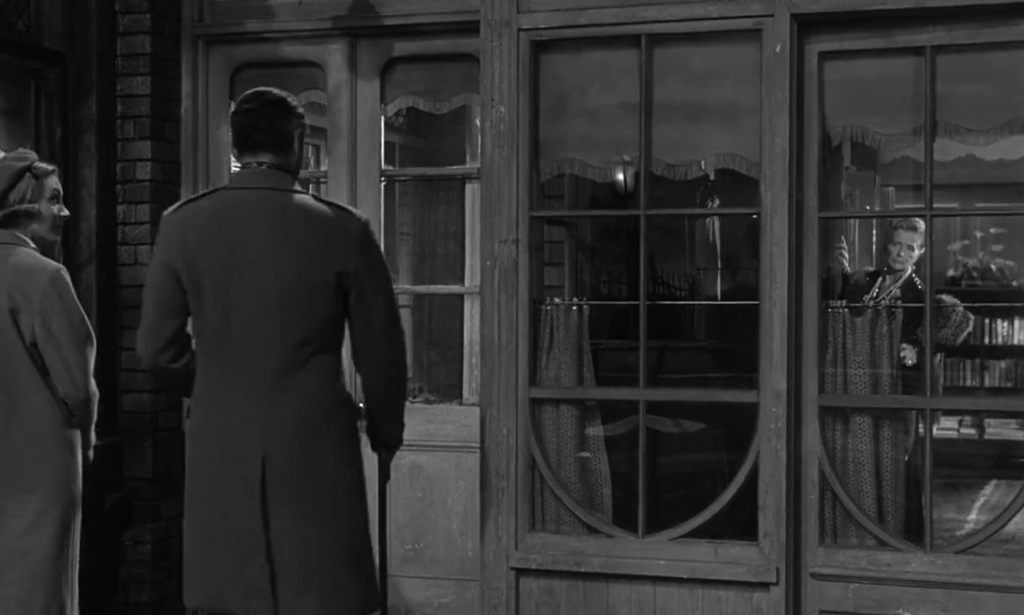
2 thoughts on “Separate Tables (1958)”
In agreement with the well-observed assessment – which leaves me with little to add. Not must-see.
This is a film that I wish I liked more than I do. I like the physical / emotional atmosphere of it – which, along with Brian Moore’s ‘The Lonely Passion of Judith Hearne’, may have taken its inspiration from the wonderful 1947 Patrick Hamilton novel ‘The Slaves of Solitude’ – but this work seems to lack sufficient urgency. It tends to feel turgid.
That said… since Rattigan isn’t a bad writer, there are some nice dialogue scenes within.
Fans of solid acting may still want to check out the film for the strong work by Hiller, Cooper and esp. Niven. But Kerr’s performance, in particular, bothers me. It’s a rare instance in which I feel she was simply miscast.
I was really dismayed by Kerr’s performance; I’ve come to count on her as consistently good, but that just wasn’t the case here. Maybe it is just miscasting, and/or terrible direction. The moment when she freezes and goes catatonic is almost laughable.